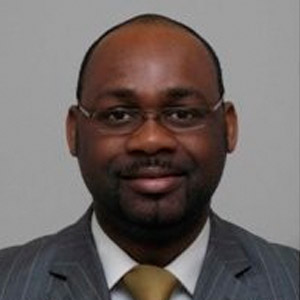
Cameroonian-born entrepreneur, Barnabé LEKAMA is the CEO of the Lekama Group companies (LGL Transport, LISS Sarl, Terre d’Afrique and Lekama Foundation). He is the current Chairman of the Benelux African Chamber of Trade.
Barnabé LEKAMA is committed to sustainable development and ecology, and is an advisor at the Green Heart Foundation, whose aim is to build the Great Green Wall of Africa. He is also an advisor at the international NGO Graines de vie, which specialises in reforestation as an integral part of local life. He has a passion for literature as he published a collection of poems entitled “Sous les feux de nos rêves” in 2014.
He will be defending his Executive Doctorate in Business Administration (EDBA) on September 2023, on the subject of “”The impact of European management on the performance of a Luxembourg SME relocated to Africa: the case of LGL Transport in Cameroon””, under the supervision of Professor Christophe TORSET, University Professor and Director of IAE Paris Est – IAE Gustave Eiffel.
Facing a hyper-competitive environment in Europe, LGL Transport relocated its teams to Cameroon in order to remain competitive. Once established, the company has encountered cultural and quality problems that had a lasting impact on its commercial performance. To remedy this, its founder, Barnabé LEKAMA, embarked on this thesis project with the aim of providing any European entrepreneur wishing to invest in Africa with the keys to managing his African teams remotely and guaranteeing performance over the long term.
Thesis Direction
Pr Christophe Torset
Thesis Title
The impact of European management on the performance of a Luxembourg SME relocated in Africa: the case of LGL Transport in Cameroon
Abstract
Africa, land of opportunities, is the new Eldorado for international economic operators. Indeed, evolving for the most part within hyper-competitive sectors and on mature markets, these companies are looking for new niches for the distribution of their products and/or services, while reducing their operating costs.
Thus, many European companies believe that it is beneficial for them to relocate all or part of their activities to African countries, especially Cameroon, and establish themselves there permanently, following the example of companies such as CFAO, INDITEX, LGL Transport…
However, many of these companies close their doors as soon as they open, unable to integrate the local market. LGL Transport, a Luxembourg company that opened a subsidiary in Cameroon in 2017, was confronted with this problem. As soon as he set up the company, the company’s founder noticed a poor performance from African employees compared to Luxembourg-based employees.
In addition, unlike European companies that set up in Africa to enter an African market, LGL Transport’s market is based in the European Union, making it necessary and difficult for African employees to adapt to a market environment that most of them are unfamiliar with and which is located more than 6,000 km away from them. Moreover, the founder is based at the head quarter of the company in Luxembourg and must manage his African teams remotely, a difficult mission given the complexities mentioned above. Therefore, we focused our attention on this subject.
We will identify the causes of the difference in performance between employees based in Africa and those based in Europe, analyse the managerial system of LGL Transport to define relevant indicators that will allow the founder-manager to evaluate his teams regardless of their location, but above all, to make all employees converge to the ideology and values of the company, regardless of their geographical area. This will allow to determine the management mode that best suits the work within the subsidiaries of European companies established in Africa.
For this, we have adopted a mixed research methodology, using both quantitative and qualitative data to analyse our fieldwork. The data gathered as part of this project was collected using our internal transport management software (TMS), by team leaders who recorded the data needed for passive observation of employees, and finally by means of an anonymous questionnaire that was given to a sample of employees, both in Cameroon and in Luxembourg.
It is above all a practical guide allowing operators in the same situation to align the results of these subsidiaries with the performance of their parent company.

